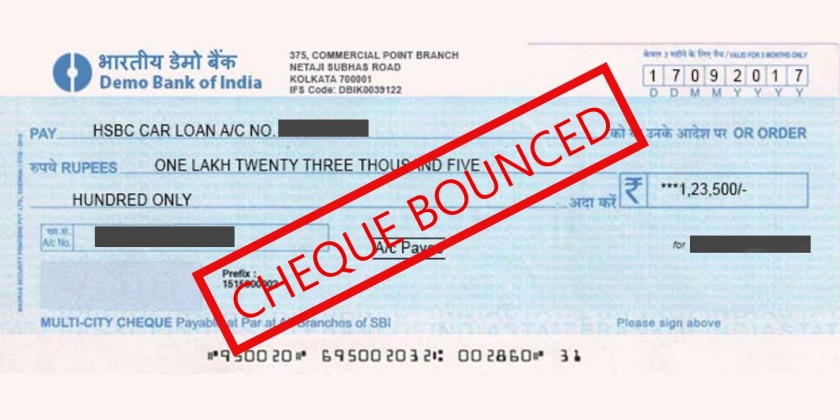If a borrower violates the terms of a mortgage or trust deed, an acceleration clause makes the full obligation due immediately. It will also indicate when a lender can demand full repayment of a loan. However, in this post, we will understand fully what an alienation clause in real estate and mortgage really is; this also includes a comparison between the alienation clause vs acceleration clause.
Alienation Clause
A clause called an acceleration clause in a mortgage or trust deed provides that the entire debt is due immediately; only if the borrower breaches the contract’s terms. Additionally, it will specify the circumstances under which a lender may demand full repayment of a loan.
Generally, accelerating a debt is a terrible idea. Typically, this indicates that a borrower could not reach the contract terms; and the lender is seeking immediate payment of the whole loan balance to avoid foreclosure.
While acceleration provisions are most frequently found in commercial and residential real estate transactions, they do appear in some leases as well.
An alienation clause is a clause that is noticeable in loan agreements, mortgages, deeds of trust, or insurance contracts. It gives the lender the right to demand repayment of the loan’s outstanding balance in certain circumstances.
In other words, if a person borrows money from a bank to acquire a house and is still in obligation to pay principal and interest under the loan arrangement; the entire balance of the borrowed funds will become immediately due and payable upon a future sale.
What Is The Alienation Clause In Real Estate
Alienation clauses, also known as due-on-sale clauses, are provisions in real estate contracts that require borrowers to pay off the remaining balance of their mortgage loan immediately upon the sale or transfer of a property’s title and prior to the new buyer acquiring ownership. It applies whether the transfer is voluntary or not. They can now include this language in the majority of mortgage agreements.
In real estate, your lender offers you a loan in exchange for the title to the property, which the lender utilizes as collateral. As such, it serves as a safeguard for them while you return the debt. Similarly, they protect themselves further by utilizing mortgage provisions such as the alienation clause. It assures that they recoup their costs even if you sell or transfer ownership of your house. In general, your lender employs both the title and mortgage provisions to protect their interests.
The Purpose Of A Real Estate Alienation Clause
What is the purpose of an alienation clause? In real estate, an alienation provision prohibits a property owner from transferring a mortgage to another party. It is a clause that remains in effect throughout the term of a house loan. However, your alienation clause in real estate imposes a requirement that you spend the revenues of the sale to pay down your mortgage.
Your loan’s terms have no bearing on your buyer’s ability to finance a loan with comparable terms. If a buyer does not pay in cash, he or she must negotiate with a lender to arrange financing at an interest rate and duration that is appropriate for their financial and credit situation.
What’s The Opposite Of Alienation In Real Estate?
A mortgage that is assumable is the polar opposite of an alienation clause. How it works is as follows:
- The buyer assumes the seller’s existing mortgage in its entirety.
- The purchaser begins making monthly mortgage payments.
- The seller is released from any obligations and liabilities incurred as a result of the loan.
The primary benefit for a buyer who is unable to obtain prime lending terms is that they are immediately enrolled in a mortgage with an interest rate determined by the prior owner’s credit history rather than their own.
While certain FHA, VA, and USDA mortgages are assumable, this is almost never the case with conventional mortgages. Even assumable mortgages are subject to lender qualification prior to the approval of a mortgage transfer. A qualified assumption typically requires the new buyer to qualify for financing based on their debt-to-income ratio and other underwriting criteria.
Finally, you won’t know whether your assumable mortgage can genuinely be transferred until the bank does a credit check on your prospective buyer.
What Is The Practical Use Of The Alienation Clause?
Briefly said, because the borrower is legally prohibited from selling, transferring, or assigning the mortgage on the date of sale, if a property owner desires to transfer title to the property (alienate property), he or she must pay off the bank on the date of closing.
Generally, the seller will utilize the profits of the sale to repay the bank loan prior to transferring the title to the buyer.
Alienation Clause Mortgage
When a borrower sells or transfers their home, the alienation clause in the mortgage contract provides the mortgage lender the right to demand immediate and complete repayment of the loan, including principal and interest. The condition stipulates that the balance must be repaid before the buyer’s title to the property can be transferred. Payable to the fact that the balance becomes due upon sale, this condition is sometimes referred to as the due-on-sale clause. This restriction applies regardless of the nature of the transaction or transfer.
If your lender invokes an acceleration clause, you will receive a notification by mail. It should include the rationale for the mortgage acceleration, the lender’s contact information, the mortgage balance; including any back interest owed to date, as well as a payment due date.
Typically, the letter will demand money and include a deadline for payment. If you repay the entire balance outstanding on your loan; the lender will issue you the amended title free of the mortgage lien.
For the lender, the alienation clause serves a variety of functions. To begin, it provides the lender with assurances that the borrower will repay the cash. Additionally, this clause requires the borrower to notify the lender prior to transferring or assigning the mortgage to another party. Most significantly, an alienation provision precludes the homebuyer from taking over the mortgage. Without this clause, the buyer could simply absorb the old mortgage and repay it at the previous rate; rather than securing a new loan at market rates.
The alienation clause mandates the seller to repay the balance of their mortgage on the date of closure. Frequently, the seller will repay the balance using the proceeds of the sale.
Exceptions To The Clause Prohibiting Alienation
While mortgage lenders often enforce the alienation clause, there are instances when a borrower can transfer the mortgage to another party; without activating the clause. And thereby avoiding repayment of the mortgage. These include the following:
- When the borrower dies, the property is transferred to a joint owner or a family member of the owner.
- Property divisions that occur following a divorce or separation
- The property is conveyed to a revocable living trust.
- The owner secures a second mortgage, such as a home equity loan, on the property.
- The property is subject to an assumable mortgage, which means that it was in creation prior to the 1970s; and does not contain an alienation provision.
Next to read through is the alienation vs acceleration clause.
Alienation Clause vs Acceleration Clause
A clause known as an alienation clause restricts you from reselling your mortgage to the next buyer. Rather than that, your buyer must secure separate financing prior to closing on your house. For instance, assume you are selling a home that is under financing and contains an Alienation clause real estate. It’s critical to understand your financial responsibilities to your lender once an offer is made on your house.
An alienation clause in a loan agreement or mortgage gives a lender the right to demand full payment of all sums due; under the agreement upon the occurrence of a specific event.
These mortgage alienation clauses are common in residential and commercial real estate loans and financing agreements. They guarantee that the lender will receive full repayment if the real estate property is off the market; or if the borrower intends to transfer the title to a third party.
Acceleration is most frequently useful when a borrower defaults on any of the agreement’s requirements.
In other words, an acceleration clause is a term useful in loan agreements that force borrowers to return the entire principal amount; in the event of a contract violation or failure to comply with specific lender-imposed obligations. Acceleration clauses are particularly common in the real estate business; as they protect lenders from defaults on interest payments or other debt covenants.
When the acceleration clause is triggered, the lender frequently attempts to foreclose on the property. The acceleration clause may be invoked at the lender’s discretion under the following circumstances:
- Inability to make monthly payments
- Inability to pay property taxes
- Inadequate insurance coverage on the property
- Borrower’s insolvency
- Borrower’s bankruptcy
What Is An Alienation Clause vs An Acceleration Clause?
While an alienation clause takes effect when you sell your house; an acceleration clause takes effect when you fail to comply with a loan term requirement. The most frequently cited reason is a late mortgage payment. Both conditions compel you to immediately repay the entire sum of your loan, including accrued interest.
What Is the Difference Between an Acceleration Clause and an Alienation Clause?
While an alienation clause takes effect when you sell your house, an acceleration clause takes effect when you fail to comply with a loan term requirement. Both conditions compel you to immediately repay the entire sum of your loan, including accrued interest.
What Is Alienate in Real Estate?
A clause known as an alienation clause restricts you from reselling your mortgage to the next buyer. Rather than that, your buyer must secure separate financing prior to closing on your house. For instance, assume you are selling a home that is under financing and contains an Alienation clause real estate.
What Type of Clause Will a Lender Use to Prevent an Assumption of a Mortgage
Acceleration clauses are particularly common in the real estate business, as they protect lenders from defaults on interest payments or other debt covenants.
What Is the Defeasance Clause?
A defeasance clause is a clause in a loan agreement that indicates that the borrower will receive title to the property if they meet the lender’s payment requirements.
What Is a Sweeper Clause?
This is a provision in an agreement that deals with rights or duties that are not otherwise assigned by the terms of the agreement.
What Is a Mitigation Clause?
The idea of mitigation of damages, commonly known as the doctrine of avoidable consequences, prohibits a plaintiff from claiming damages that could have been averted through reasonable efforts. The responsibility to reduce damages is most commonly utilized in the tort and contract law contexts.
Related Article
- ESCALATION CLAUSE REAL ESTATE: Why And When You Should Use It
- Escalation Clause in Real Estate: Practical Examples (+Quick Tips)
- Buy and Sell Agreement: How It Works, Key Elements, and Importance
- ATTORNMENT: Meaning, Letter Format, Examples (+ What You Should Know)
- CAR TITLE LOANS: 11 Alternatives to Raising Cash






